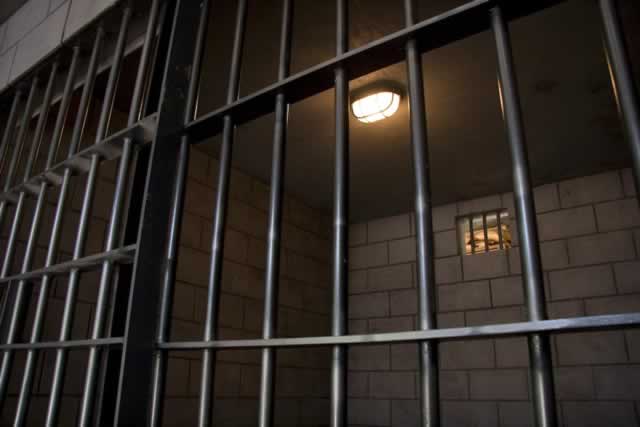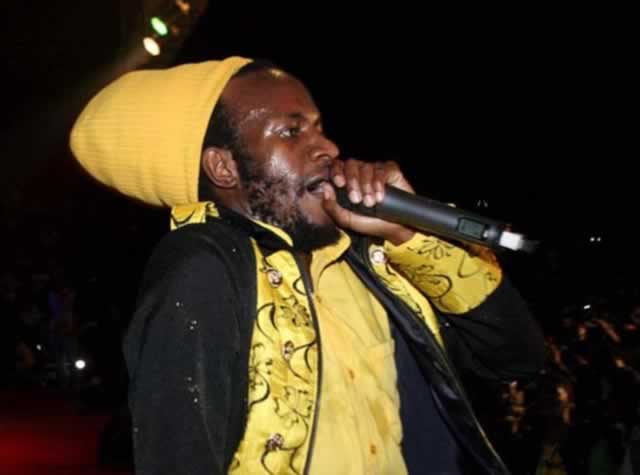The tragedy of women prisoners

Elliot Ziwira @The Book Store
The nature of the Zimbabwean prison system destroys women emotionally, psychologically and physically.
THERE is something about poverty which burdens the soul and robs one of choice, thus rendering him/her a mere pawn in the game of crowns controlled by the rich and mighty.
The tragedy of lack lies in its capacity to destroy all forms of dignity, discernment and foresight, as reasoning dies in the wake of an empty tummy; the poor and feeble’s lament of sorrow and toil.
When things get uncharacteristically tough and nasty in this rat race that we euphemistically call life, women become not only vulnerable, but predatory monsters who prey on unsuspecting men. Not that they should be faulted; no; it is just a result of their nature.
Burdened by womanhood and motherhood, women expose themselves to different forms of imprisonment in a bid to eke out an existence for themselves and their families. Devoid of hope, in a world that is too busy to hear the poor man’s hymn of despair and hunger, women find themselves prostrate between a rock and a hard place. Reeling under poverty and ignorance, the fairer sex finds itself an elixir in marriage, crime and the bar – all symbols of imprisonment.
It is against this backdrop that the reading of “A Tragedy of Lives: Women in Prison in Zimbabwe” (2003) edited by Chiedza Musengezi and Irene Staunton becomes spot on. The book is a sad rendition of women’s struggles in a world that pays scant attention to the yapping of the weak.
Using interviews as a narrative technique, the compilers capture women’s experiences which lead them to physical incarceration and psychological imprisonment.
As they escape from poverty and ignorance, which seem to be synonymous, through marriage, women find themselves in a prison which does not only scald them, but breaks them. The claustrophobic nature of marriage which women endure to some point, though simmering inside, hoping that the lid will not be lifted to lay bare their inner turmoil, eventually disintegrates them. Culturally they find themselves at wit’s end as they have to compromise and tolerate their husbands’ huge egos and their clan’s rules and expectations.
One of the characters is Maureen, whose story makes one grow a lump in the throat, not only because it ends in arson and murder, like Beti’s, but because it exposes the voyeur in man which seems to draw excitement from trauma, suffering and disaster.
She has to put up with her husband’s hard rules which she spells out: “His home had its rules. No wife followed her husband to his workplace. So, I had to be at the rural home while he worked in Harare
“My in-laws gave me a piece of land to farm … Then when my crops were harvested, I was told another rule. I had to wait for my husband to come and cash the cheques … I was surprised at the amount of money he gave me.”
Because her husband has a girlfriend in the city, he takes almost all the money with him which irks her. Realising that the rules are too heavy a burden to endure, she decides to break them, though with fatal con- sequences.
Maria and Beti also find themselves in similar situations where one either shapes up or ships out, and they choose neither. Maria “had serious disagreements with (her) husband” who no longer loves her, and they “quarrelled and fought frequently”.
Unable to stand the violence any longer, she “took a pole and hit him with it on the head” and “he fell down at once and was unable to wake up again”. And Beti poured boiling cooking oil into her husband’s ear and he eventually dies leading to her arrest, and subsequent imprisonment.
The crimes of passion explored in minute detail here by the victims-perpetrators themselves are not only sad and unfortunate, but chilling and boggling, because yet other forms of imprisonment crop up; familial and societal.
The media are awash with such horrendous, indignant and spine-chilling crimes which lacerate the moral flesh of society, leading to the malaise, neurosis and paralysis of the family unit, community and nation. This is especially so as innocent pawns are dragged into the mire and suffer as a result of others’ whims.
This is evident in Rhoda, who in a moment of madness spurred on by her irrational fear of witchcraft; “swung the machete in any direction with the intention of hurting whoever was in my way. Two people died – the six-year-old nephew and his father.” Yet the two are only innocent relatives of the woman whom she suspects of killing her son through witchcraft. She is now serving a life term for the crime.
Society, with its norms and values, also thwarts individual aspirations and expectations, and places a load on the individual psyche. Society expects a woman, especially a married one, to behave in certain ways, and if she does otherwise, she is stereotyped and ostracised.
She is expected to bear children as Elizabeth notes: “A proper wife should have children, and make her husband a father.” Society’s failure to condone barrenness in a married woman exerts so much pressure on her as she has to please her husband and his relatives.
If anything goes wrong in the marriage, society expects her to be submissive, silent and tolerant. Hence giving her little or no room to manoeuvre, which in the case of Elizabeth leads to crime as she steals a baby.
Society also instils fears into individuals and at the same time expects them to be brave. Culture creates phobias and excessive fears through its subscription to the supernatural, but still expects rational thought to remain intact in the individual.
In the presence of the fear of witchcraft, rational thought cannot be counted on, as is the case with Rhoda, Ellen and Tabeth.
All the metaphorical forms of imprisonment examined above lead to literal imprisonment as individuals find themselves escaping from one form of imprisonment to another.
Poverty seems to pervade all the experiences explored in “A Tragedy of Lives” as aptly summed up by Ollyn Rudo Nzuma, a regional magistrate, who also contributes as an interviewee in the collection: “The offences which women commit are generally those petty offences like theft: shoplifting, or going to someone’s fields and stealing some maize or something during a funeral …
“Most petty theft is committed because of starvation. Most women depend on the husband and often the husbands are neglecting them…”
It is really a tragedy that after committing crimes to fend for their families, as they strive to locate themselves in the different sites of the walls of the prisons that permeate their existence, women find themselves incarcerated. Even if they are asked to pay fines, the law itself is discriminatory because: “Those who can pay will escape the jail term,” as “anomalies exist: a poor person ends up serving 20 days in prison with labour, a rich person does not,” so bemoans the regional magistrate.
The nature of the Zimbabwean prison system destroys women emotionally, psychologically and physically. Emotionally they suffer the pangs of denial and normlessness, as they preoccupy themselves with the fear of the unknown; wondering what their husbands are up to and what their children will be eating.
They feel that their imprisonment in a way also imprisons their loved ones. Physically the prison apparatus is not “user friendly” to women in terms of amenities and all. They also have to labour their way out. And after serving their terms, they wake up to empty hope as reality dawns on them – their husbands gone with the wind.
Having to face an uncompromising society, they find themselves caught up in a vicious circle that defies closure; their dreams remaining mirages etched on the ever receding horizon, which burdens them psychologically.









Comments